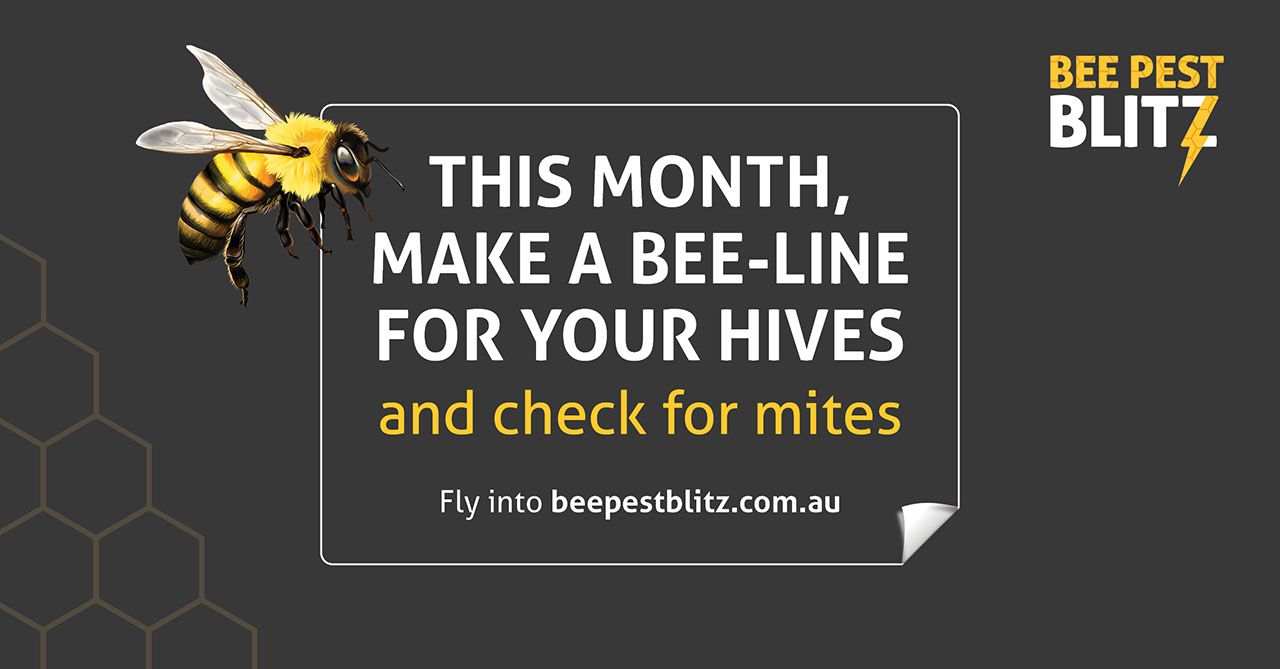April Bee Pest Blitz
With over 45,000 registered beekeepers who own approximately 822,000 hives, keeping Australia’s honey bee population healthy is no mean feat.
‘Bee Pest Blitz’ is an annual month-long national campaign to increase awareness of the importance of bee biosecurity and encourage beekeepers to inspect their hives for high priority exotic pests.
Accurate bee surveillance is key to the timely detection of new pests and provides the best chance to respond and maintain healthy honey bee colonies for a healthy industry.
Autumn is an ideal time to conduct hive inspections and alcohol washing is the most effective method to check for varroa mites.
Alcohol washing is a quick and effective method to detect the presence of external mites within a colony.
This method can remove over 90% (with multiple rinses) of external varroa mites present on adult honey bees. Alcohol washing can also detect tropilaelaps mites.
Very little equipment is required to conduct alcohol washing and it can be easily performed during routine hive inspections. Varroa mite feed and reproduce on honey bee brood, which means the nurse bees that take care of the brood cluster, commonly have varroa on them. Alcohol washing targets the central brood cluster where you are most likely to find nurse bees. The key to the effectiveness of this method is the length of time shaking or swirling the solution and the number of washes conducted, to achieve the highest volume of mite recovery.
Surveillance reporting will be handled at a jurisdictional level and the Bee Pest Blitz website hosts all the reporting links beekeepers will need to do this effectively. Victorian beekeepers should record their inspections in the BeeMAX BeesOnline beekeeper diaries.
Improving honey bee health and maintaining healthy bee populations into the future, is essential for the production of Australian honey and those agricultural sectors reliant on honey bee pollination services.
‘Bee Pest Blitz’ is a Department of Agriculture, Fisheries and Forestry (DAFF) funded initiative, led by the Australian Honey Bee Industry Council and supported by all state and territory governments.
Visit beepestblitz.com.au for free surveillance resources on general safety and biosecurity considerations before you start; materials needed to conduct an alcohol wash; how to perform an alcohol wash; and how to submit your results.
